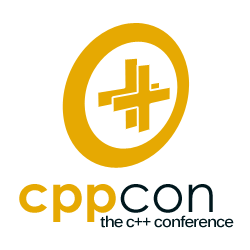CppCon 2018 Call for Poster Submissions - Three Days Left!
Don't wait!
CppCon 2018 Call for Poster Submissions - Three Days Left!
by CppCon
From the article:
Are you doing something really cool with C++? Then you should consider creating a poster and presenting it at CppCon 2018.


 Have you registered for CppCon 2018 in September?
Have you registered for CppCon 2018 in September?  Have you registered for CppCon 2018 in September?
Have you registered for CppCon 2018 in September?  Have you registered for CppCon 2018 in September?
Have you registered for CppCon 2018 in September?  Have you registered for CppCon 2018 in September?
Have you registered for CppCon 2018 in September?  Have you registered for CppCon 2018 in September?
Have you registered for CppCon 2018 in September?  Have you registered for CppCon 2018 in September?
Have you registered for CppCon 2018 in September?